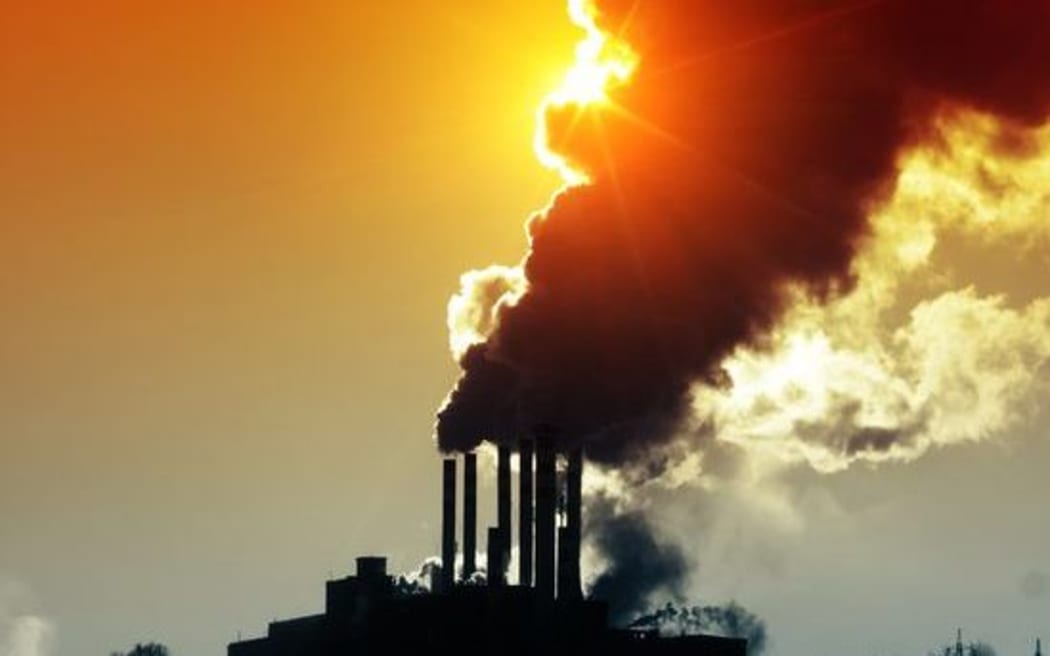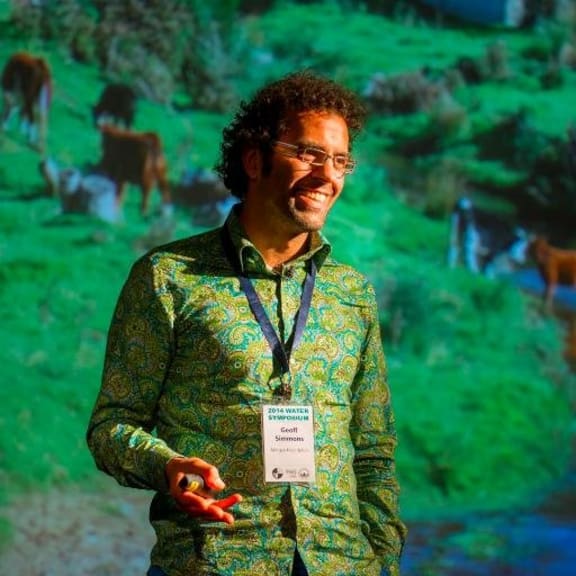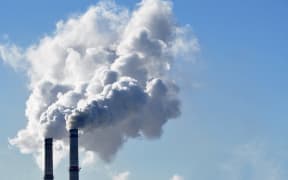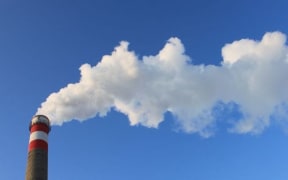The Morgan Foundation has released what it calls the "dirty dozen": the top 12 New Zealand companies that it believes cheated in the way they fight climate change.
Among the list are household names such as Fonterra, Z Energy, Genesis Energy, and Contact Energy, as well as New Zealand Steel.

Photo: 123rf
The foundation says the companies knowingly bought cheap overseas emission units - which had no environmental integrity - to offset their pollution, as part of the government's Emissions Trading Scheme.
It has released a follow-up to its original Climate Cheats report published in April.
View the report released today (PDF, 4.1MB)
Now the Morgan Foundation wants the government and these companies to be held to account.
Until last year, New Zealand companies could buy what were known as emission reduction units (ERUs).
Those units were issued by countries that had developed projects that reduced pollution - the idea being that companies could buy them to offset their own emissions.
But some countries like Ukraine and Russia issued units that did not come from genuine pollution mitigation, and it has been alleged those schemes were fraught with fraud.

Geoff Simmons Photo: Supplied
These units were cheap, which meant paying for pollution was much cheaper for the companies that bought them, but did not actually represent reduced emissions.
The report's author and Morgan Foundation general manager Geoff Simmons said those units were dodgy.
"For our own credibility, New Zealand needs to take responsibility for the fact that we knowingly engaged in a trade in fraudulent foreign units with absolutely no environmental integrity."
He said New Zealand had hurt its international reputation and needed to make good on that.
"Whether that comes from the government or businesses it doesn't really matter, as long as someone actually puts their hand up and takes responsibility."
Petrol companies BP and Z Energy were in the top three of the foundation's "dirty dozen" list.
Z spokesperson Jonathan Hill said the company had done nothing wrong.
"Within the rules, we opted to purchase the cheapest emissions that we could given that the cost of those units is effectively passed on to customers and we have to deliver the lowest cost to customers that we can," he said.
Mr Simmons said that argument was flawed because ExxonMobil, which had a world-wide company policy guiding which units it could buy, had not bought those units and so was not on the list.
But Mr Hill said the rules were developed in good faith. He did not think companies or the government should retrospectively pay for the pollution, but said Z did want the ETS tightened up.
Profiting from the ETS?
Some of the companies on the list were exporters, such as Fonterra and New Zealand Steel, which meant they also received free New Zealand Units (NZUs) from the government.
Mr Simmons said he believed those companies had banked the free and more valuable NZUs, and used the cheap ones to pay for their pollution.
He also raised concerns over whether New Zealand Steel traded in those units and made money from them.
"NZ Steel really needs to come clean on what they've done with those units, whether they've sold them, or whether they're keeping them there to use on a rainy day."
Mr Simmons said if the company was keeping them it would have enough to cover its carbon emissions for years to come.
"Which is kind of ironic when you think about how much whinging NZ Steel does about the Emissions Trading Scheme - the fact that they've hugely profited from it," he said.
When questioned about this and $4.4 million in income outlined in its 2015 directors' report, a New Zealand Steel spokesperson said only that it had fully complied with the government's policy and regulations and did not comment on financials other than those reported in its annual accounts.
Researcher calls for government response
Motu research fellow Catherine Leining, who worked on the original design of the ETS, said the Morgan Foundation's new report did highlight a critical issue - that New Zealand needed to maintain the integrity of its contribution to global climate change mitigation.
However, the government and the companies had followed the rules of an international agreement with weak targets, she said.
"The reality is that more firms may want to do the right thing by the climate but can't because they have to compete against other producers on the basis of price and answer to their shareholders."
She said the New Zealand firms that took the high road and avoided hot-air ERUs should be applauded, but government policy needed to provide the firms with certainty on a rising price of emissions over time.






